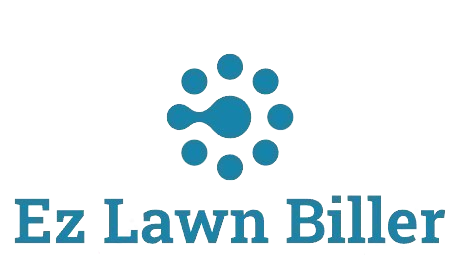Stay compliant with your lawn business by following these essential steps! Learn how to navigate regulations and keep your operations running smoothly.
Step-by-Step: How to Stay Compliant in Your Lawn Business
Compliance in the lawn care industry is not just a regulatory hurdle; it’s an essential aspect of running a sustainable business. Many lawn care professionals face challenges in adhering to regulations governing pesticide use, safety standards, and labor laws. This blog post will provide a comprehensive guide on how to navigate these complexities. We’ll explore key compliance areas relevant to your lawn business, practical tips for staying compliant, and tools that can simplify these processes. By the end of this article, you will have a clear roadmap to ensure your lawn care business operates within legal boundaries while promoting a professional image.
Running a lawn care business involves managing a range of tasks, including scheduling, billing, and service delivery. However, it also requires a solid understanding of regulations that can affect your operations. Compliance is crucial, as it safeguards your business from potential fines, lawsuits, and damage to your reputation. As we dive into this topic, we will cover how to stay compliant in different areas, including licensing, safety standards, environmental regulations, and tax obligations.
Understanding Licensing Requirements
One of the first steps in ensuring compliance in your lawn business is to understand the licensing requirements pertinent to your state or region. Most states require lawn care operators to have specific licenses to apply pesticides or perform certain types of landscaping work. Failure to obtain the necessary licenses can result in hefty fines and legal complications.
For example, in some states, you might need a general business license, a pesticide applicator’s license, or even an irrigation contractor license. Research these requirements thoroughly; resources like your state’s Department of Agriculture can provide the necessary information. Additionally, consider enrolling in training programs that can offer certifications, enhancing your credibility as a licensed professional.
Maintaining licenses is equally important. Keep track of renewal dates and any continuing education requirements to ensure that you remain compliant. This diligence not only protects your business but also reassures your clients that you are a qualified professional.
Safety Standards and Practices
Safety should be a top priority in your lawn care operations. Compliance with Occupational Safety and Health Administration (OSHA) regulations is essential for protecting you and your employees on the job. OSHA guidelines include the proper use of personal protective equipment (PPE), safe handling of equipment, and training for all employees.
Conduct regular safety training sessions to educate your staff about safe practices, including how to handle chemicals and safely operate machinery. Implementing a safety program can reduce workplace accidents and injuries, which can lead to costly insurance claims and disruptions in service delivery.
Moreover, maintaining a clean and organized work environment enhances safety and compliance. Regularly inspect tools and equipment and ensure that your vehicles are well-maintained to prevent accidents on the job site.
Environmental Regulations
As a lawn care business owner, you must also be aware of environmental regulations that govern the use of pesticides, fertilizers, and water usage. The Environmental Protection Agency (EPA) sets guidelines on how chemicals should be stored, used, and disposed of to minimize environmental impact.
Before applying any pesticides or fertilizers, familiarize yourself with the regulations concerning their use in your area. This includes understanding the restrictions on certain chemicals and the necessary buffer zones near water bodies. Additionally, consider adopting environmentally friendly practices, such as organic lawn care solutions, which can help differentiate your business and appeal to eco-conscious clients.
Implementing best practices for water conservation can also keep your business compliant with local regulations. Many areas have restrictions on water use during dry seasons, so be sure to stay informed about local laws and adjust your services accordingly.
Tax Obligations and Financial Compliance
Tax compliance is another critical area that lawn care business owners must navigate. Properly managing your taxes ensures that you avoid penalties and maintain a good standing with the IRS. Familiarize yourself with local, state, and federal tax requirements applicable to your operations, including sales tax on services or materials.
Consider leveraging accounting software or hiring a professional accountant to keep track of your finances. This can streamline your billing process and ensure accurate reporting. Software like [Lawn Biller Software](https://ezlawnbiller.com/) can help automate invoicing and payment tracking, making it easier to stay organized and compliant.
Keep meticulous records of all transactions, including expenses, income, and receipts. Not only will this help you during tax season, but it also provides a clear picture of your business’s financial health, aiding in informed decision-making.
Employee Compliance and Labor Laws
If you employ workers, understanding labor laws is vital for compliance. This includes wage and hour laws, worker’s compensation insurance, and employee rights. Ensure that you pay your employees fairly and adhere to regulations concerning overtime, breaks, and work hours.
Additionally, create a clear employee handbook outlining company policies, safety procedures, and compliance expectations. Regularly update this handbook to reflect any changes in laws or practices. Training your staff on these regulations fosters a culture of compliance and accountability.
Conduct regular audits of your compliance processes to identify gaps and implement improvements. This proactive approach can prevent issues before they arise, ensuring smooth operations and showcasing your commitment to professional standards.
Utilizing Technology for Compliance
In the digital age, leveraging technology can significantly aid in maintaining compliance in your lawn business. Software solutions can help you manage licenses, safety training records, and employee information efficiently. Look for solutions that offer comprehensive features, such as those found in [Lawn Biller Software](https://ezlawnbiller.com/), to simplify your billing and client management processes.
Additionally, consider using mobile apps for real-time documentation of services performed, chemical applications, and equipment maintenance. These tools can provide accurate records in case of inspections or audits, demonstrating your commitment to compliance.
Investing in technology not only streamlines your operations but also enhances your professionalism in the eyes of your clients. By adopting innovative solutions, you can focus on delivering exceptional service while staying compliant with relevant regulations.
Staying Updated on Compliance Changes
Regulations in the lawn care industry can change frequently. To ensure ongoing compliance, commit to staying updated on any changes that may affect your business. Subscribe to industry newsletters, join professional associations, and participate in local business groups to keep informed about legislative updates.
Networking with other lawn care professionals can also provide valuable insights into best practices and compliance strategies. Consider attending workshops or conferences that focus on regulatory changes, safety standards, and emerging trends in the lawn care industry.
By being proactive in your compliance efforts, you position your lawn care business to thrive in a competitive market while mitigating risks associated with non-compliance.
Conclusion
In summary, staying compliant in your lawn business requires a multifaceted approach that encompasses understanding licensing requirements, prioritizing safety, adhering to environmental regulations, and managing tax obligations. By implementing best practices and leveraging technology, you can create a robust compliance strategy that protects your business and enhances your reputation.
As regulations continue to evolve, maintaining a commitment to compliance will serve as a foundation for long-term success. Consider tools like [Lawn Biller Software](https://ezlawnbiller.com/) to streamline your operations and ensure that your business remains compliant while you focus on providing excellent lawn care services.
Stay informed, stay compliant, and watch your lawn care business flourish!




